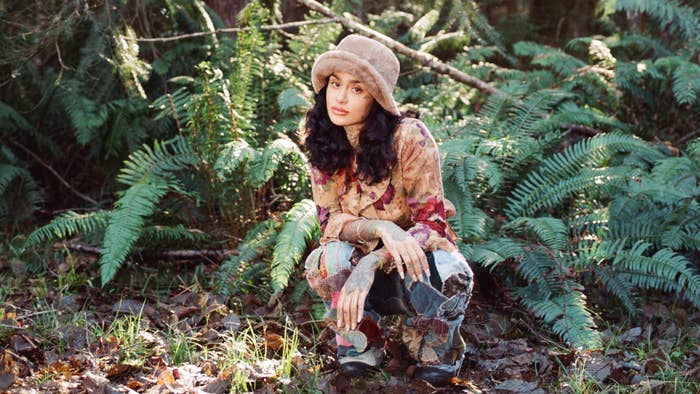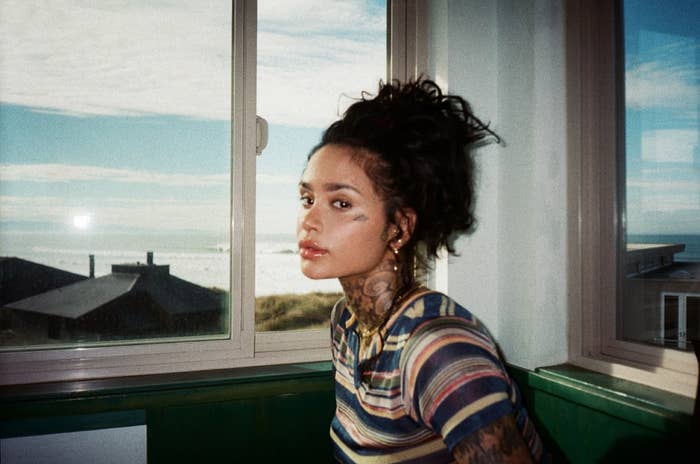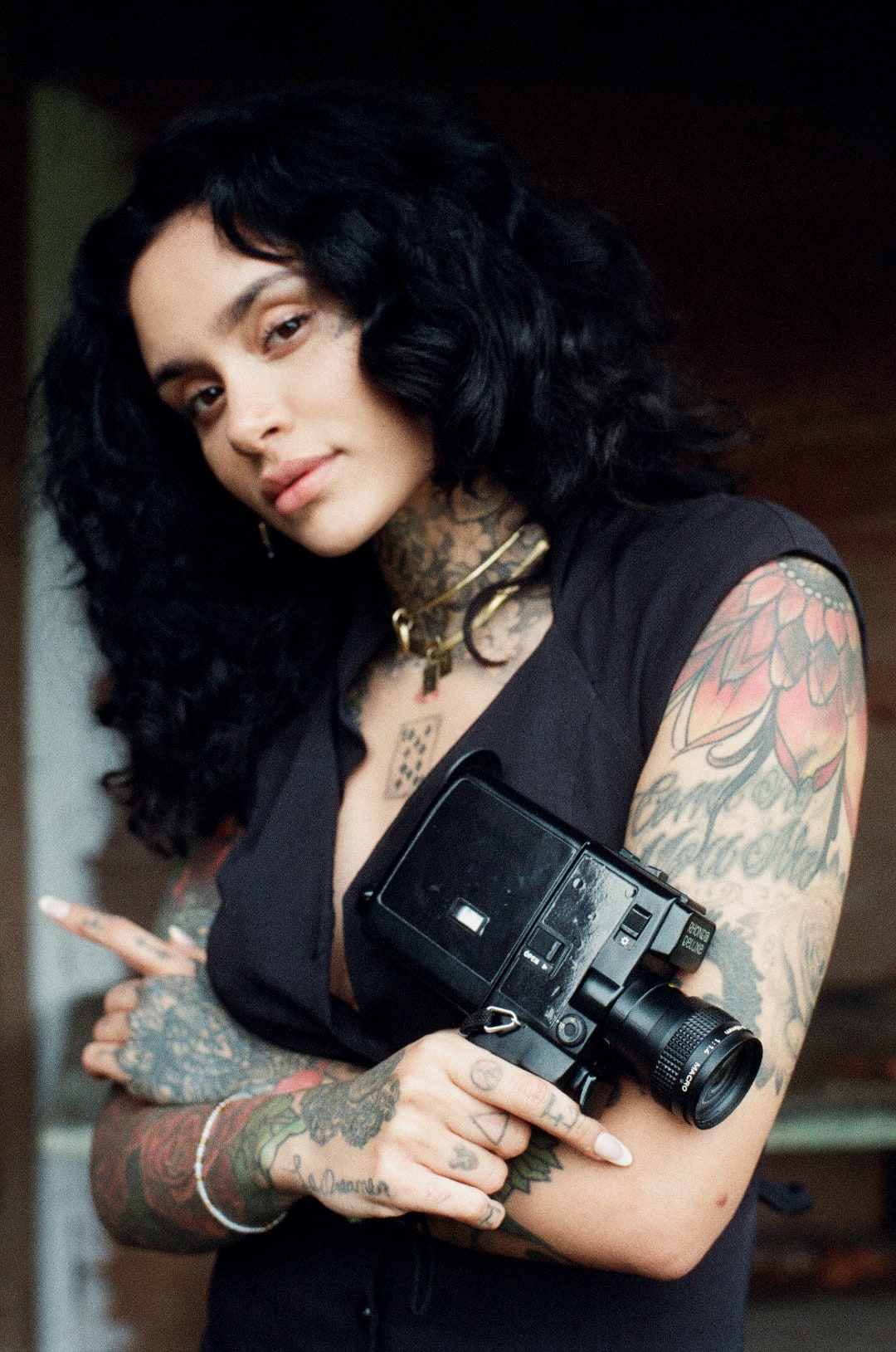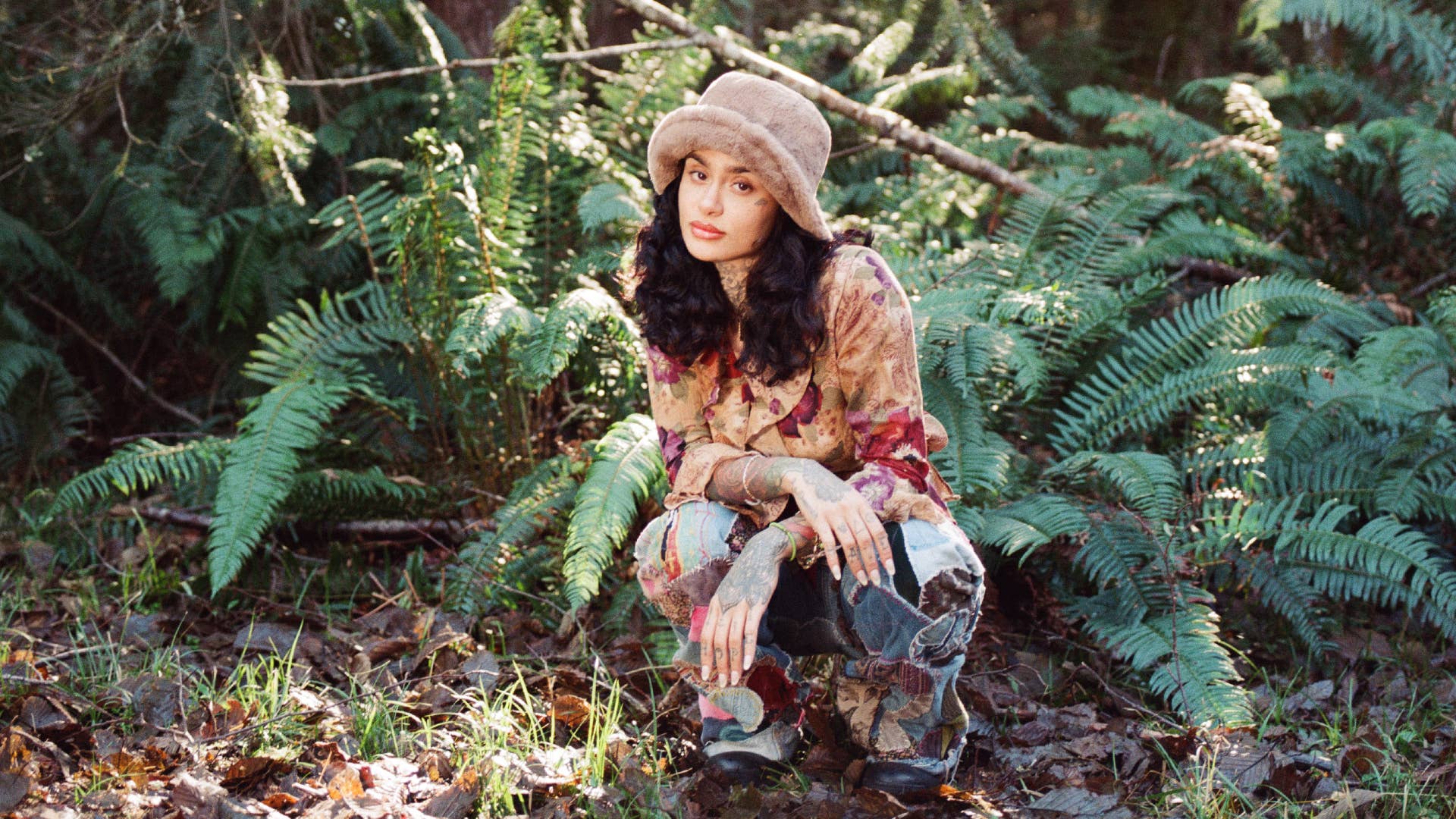
For a certain segment of Gen Z, it feels like we grew up alongside Kehlani. As a solo artist, their ascent happened while life online was entering a new era and R&B was being reimagined by a new generation. To be a teenager at this time was complicated. When I first heard their Chance the Rapper-assisted track “The Way,” I was 17 and scrolling through Tumblr. They sang with a self-assured bounciness that was a reprieve from the moody angst that had swallowed the genre, but it didn’t detract from how real they could get about darker topics like grief and heartbreak. Still, they wrote with an overarching optimism that set them apart from artists of a more emo ilk.
Several years later, Kehlani describes their new album Blue Water Road as a return to form. In a YouTube miniseries released before the album, they describe this renewed perspective. “I used to clown how happy and bright I felt in my first album,” they tell the camera. “The contrast in my second album was so dark, I felt like that was cooler and more mature. Now that I’m back in a really bright space but I’m older, it doesn’t feel corny to me.” On tracks like “little story” and “melt,” they lean into intense euphoria, treating joy with the same profundity as grittier feelings like loss, which they sing about on “altar.” By honouring the ebb and flow of these emotions, they were able to create what they referred to as their deepest work to date.
Days before unveiling Blue Water Road, Kehlani chatted with Complex Canada about feeding into joy, breaking free from genres, and working with some of their favourite Canadians.

Happy belated birthday! How was your birthday this year?
It was incredible. It was literally a two-day birthday. I was surrounded by all of my close friends and we just had a good time. It wasn’t extravagant, it was super chill and beautiful and homey.
It’s so interesting how you timed your new album to entering a new year of life. In what ways is Blue Water Road a portrait of 26-year-old Kehlani?
I think 26-year-old Kehlani was just in a super positive, but transitional phase. I’ve made a lot of transitions, but this was the largest and most permanent shift that I’ve made in my life. I think I’ve found peace, I’ve found understanding, I’ve found grounding and that’s why the album feels the way that it does.
“I think 26-year-old Kehlani was just in a super positive, but transitional phase. I’ve made a lot of transitions, but this was the largest and most permanent shift that I’ve made in my life.”
In the first episode of your Blue Water Road web series you spoke about your sonic evolution and having a new appreciation for the happiness that you evoked on SweetSexySavage—as a creator how would you compare writing from a space of joy and writing from a space of sadness?
I’ve just learned how to completely decide what I feed in my life and I feel like it was really important for me to make that decision to not feed the darkness with more darkness. But if I actually wanted to feel better and not just release, but if I wanted to release and grow and heal a little bit and be happy, then I had to choose to feed the healing parts and the light parts and the joyful parts. That’s why I think that there isn’t really anything dark on this project. It was just important to me to be true to where I was at and not force that just because my audience might be used to that from me. I’ve been in a good place so the music’s in a good place.
What does feeding that joy look like for you?
It’s anything that brings me genuine joy. And sometimes it’s completely opposing things, like surfing versus getting drunk with my friends versus watching episodes of Grey’s Anatomy. It is those different things, but it’s anything where I don’t have to force the joy to come through. I do feed a lot of my hobbies. I have so many hobbies and so many interests and those are what feed my creativity. If I don’t do any of those things, I can’t show up to do the work because I’m empty and flat.
I love that you’re a Grey’s head.
I’m a Grey’s nerd.

How has your relationship to genre changed over time? Do you feel like labelling your sound as pop or R&B detracts or enhances what you’re trying to convey?
I think so, but I also don’t think so at the same time. On one end, there is so much respect and love in these genres that it’s an honour to be categorized behind people who trailblazed these things. And there’s so much love for how it shaped my entire life. On the flip side, I think it does put a box that you almost have to feed. And if you decide not to, you’ve disappointed the expectations people put on you. I know there are people out there who refer to me as “The something something of R&B.” I know that when they hear this album and it’s not the most R&B album they’ve ever heard, they’re going to take that personally because of the title that they’ve put on me. All I’m here to declare is that I’m an artist and that I listen to all the things and that I want to create all the things. I just want to be limitless and boundless. I’ve been lucky to get as far as I have in a genre and I want to be able to try everything because that’s what being an artist is.
“I know the first Kid. Studio film is going to be insane. I’m forever in their corner because they’re great people to work with.”
There’s such a cinematic quality to the visuals on this project. How was your approach to music videos for Blue Water Road different from previous projects?
I have withdrawn from the idea of thinking of them like music videos. I think of them like little films. They’re cinematic because I think of them as cinema. I’m looking at it like, “Dang, this is a beautiful shot.” It’s not about if I look the prettiest in a shot or how my performance level was or if I was giving superstar quality. It’s because I put so much care into developing my director career and my love of film, so it’s definitely shifted because of all the energy that I’ve put into that area of my life.
Speaking of music videos, you’ve been working with Canadians Kid. Studio to create the “altar” video. How was your experience working with them?
Kid Studio did “altar” and they also did the trailer for the album. Kid. Studio is incredible. They’re incredible creatives, they’re incredible listeners, and they give incredible advice. They definitely let me spearhead things but they also came with so many of their own ideas. I think that everything they want to do beyond music videos is going to be just as insane as their video work. I know the first Kid. Studio film is going to be insane. I’m forever in their corner because they’re great people to work with.
You’ve also got Canadians Jessie Reyez and Justin Bieber on the project! How did those features come about and how was having them on the project integral to this album’s narrative?
I mean, I had to do it because they’re Canadian [laughs]. They’re just my friends and they’re both incredible artists and people. It was important to me to work with people I admire for reasons beyond their music. They just happen to also be incredible at music.


